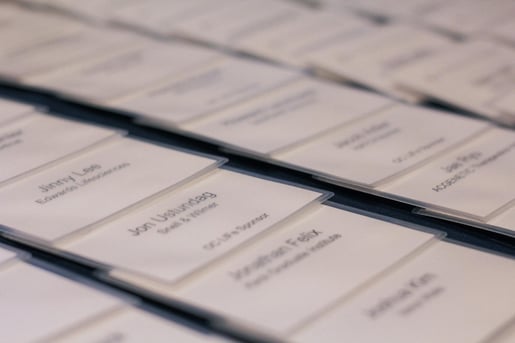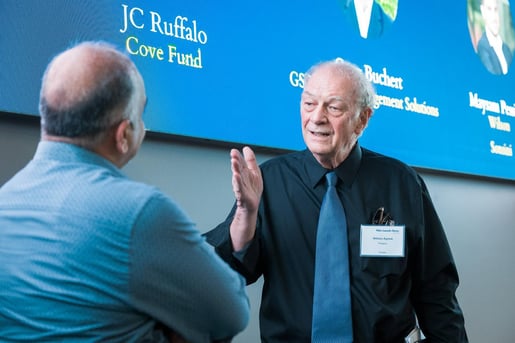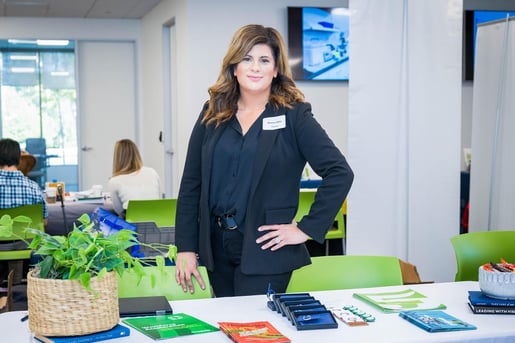An internship is a work experience that provides learning opportunities through professional development and practical work. Internships provide access to the field, thus helping students become familiar with their career choice. Therefore, the internship usually relates to the student's field of study or career interest. The internship will last for a limited time and offer compensation, thus supplying a sensible idea of working in your chosen field.
You will find that internships are offered to students by most companies and organizations. These companies share the goal of helping the student receive entry-level exposure in the industry or field and within a specific sector. Generally, interns will spend the duration of their internship working on company projects as a tangible way to learn about the field. Additionally, internships aim to help students make industry connections and develop the technical and soft skills that are needed to succeed in their line of work.
Internships are an integral part of showing that you have relative work experience in what you studied and you know how to apply it. This assumption comes from the correlation of working with industry professionals who have already established and built their careers. With an internship, you will develop your skill set in an entry-level role. Moreover, you will meet and learn from these professionals about building your career. Hear from Sydney Tu’s experience in the attached video below. She shares about her internship with fab works during her undergraduate career, which has been valuable in her industry experience and her studies. The value of her experience is just one prime example of how working with established professionals contributes to a learning and thinking process in future roles.

🔬 Learn About: Sydney Tu's Internship Experience
Before understanding common interview questions, first, it is important to understand that internships are beneficial for both parties. Internships provide a better idea of what the intern enjoys in their field and unveil talent to companies looking to fill full-time roles. Considering these mutual benefits, when applying, pursue internship positions where you are passionate about what the company is doing because the company itself will ensure your goals and interests align with its values.
With that being said, when interviewing for an internship, hiring managers want to see that you are interested in a deep learning experience within their field. For instance, a business major who intends to enter marketing should look to intern for a media company. To secure this internship, the student should demonstrate their creativity in advertisements and explain how they will bring them into the position and build upon these skills. By simply applying, you have demonstrated initiative, motivation, and aspiration for continued development. Through the lens of employers, such steps show your ability to successfully follow through with roles in projects that lead to successful completion.
Additionally, hiring managers leverage internships to search for full-time talent, so you will often hear, “You get out of an internship what you put into it.” Meaning, the companies acknowledge that these are learning experiences, but see the role as an extended interview. Companies want to train someone with an interest in the field and their company. Therefore, a company will hire interns and welcome them into the network, if they show interest in working to improve the field. The reasoning here is that companies want to provide a return offer. A return offer is when a company likes the intern and offers this person an opportunity to return for a second internship or a full-time job.
🔬 Find out: The Importance of Networking
Keeping in mind that an internship is like an extended interview, these employers will use different types of broad interview questions to find out if you are a match for the company. In the interviews, the employer is looking to see why you are passionate about what you’re doing, why you want to pursue your goals with the company, and how you apply what you’ll learn in the classroom. These broad questions will show that you have an objective and a purpose with the company, hence showing your willingness to adapt to a real-life situation and work for a successful outcome. Common internship interview questions include:
It is critical to understand the differences among each type of interview question and why they are being asked. Being able to detect the kind of question allows you to respond the correct way since you know what the interviewer is looking for in the response.
Open-Ended
Open-Ended questions are asked as a statement. These questions cannot be asked with a yes or no and require the respondent to answer the question by highlighting points and then elaborating on these points in-depth. These questions allow space to reply in as much detail as the respondent feels necessary. With these responses, the candidate also supplies more detailed information which can be valuable in revealing aspects of the responder that are not imminently apparent on their resume. The reason: responders are using their language to explain their ideas and feelings. These questions, therefore, can reveal more insights that were not originally considered.
For an internship, the possibility of you receiving open-ended questions is extremely high as the employer is getting to know you. Common open-ended questions you can expect to be asked include:

Behavioral
Behavioral questions require you to share stories that have happened and how you responded. These questions highlight an experience and require the candidate to reflect on the actions proceeding with the experience. The behavioral question is meant to provide insight into how the interviewee responds in specific situations. By sharing your behavior, you are ultimately allowing the employer to predict your behavior based on your past behavior. The importance overall is that behavioral interview questions and answers provide details of a candidate’s core skills and soft interpersonal qualities. Knowing a candidate’s personal qualities can display their problem-solving and resilience capacity as they relate to matters such as leadership, withstanding time constraints, and working under pressure.
Behavioral-based interview questions that may be asked include:
Tell me about a challenge you faced and how you overcame that challenge?
Describe a time when you had to learn something new and how you approached it.
Tell me about a time you were under pressure and how you handled the situation.
What is your favorite team you have worked on and why?
Tell me about a time you took on a leadership role and your contributions.
Situation
Situational-based interview questions are similar to behavioral ones, however, they analyze hypothetical situations. In situational questions, you will be asked to explain how you will respond to a given situation in the future. Sometimes, the circumstances you are given in the situation are ones you have never experienced before. Still, they are relative to the potential position, location, or environment you might experience as an intern in the company. Asking these questions is useful for the interviewer because they provide insight into how the candidate will respond to a challenging situation they face, while on the job. These questions also demonstrate your thought process in a tough situation. For the interviewer, your hypothetical actions demonstrate your mental agility to respond to different events quickly and flexibly. Common situational-based interview questions that could be asked include:
What would you do if you failed at a task and how you would fix it?
Consider that your coworker is unable to fulfill their role, what would you do?
If given multiple tasks, how would you multitask to ensure they are all completed?
How would you handle a disagreement with your manager?
Give me an example of effective working and what contributes to this working environment.
It is equally essential to respond to these questions in a notable way that engages the interviewer. That being said, there are tips for responding accordingly to each type of question.
Open-Ended Responses
When responding to open-ended questions, build context around the response in three minutes or less with the role in mind. Begin by setting up the situation and after that focus on the details that provide an in-depth illustration. Using the qualifications and internship description as your road map, clearly answer the questions and weave in components that justify the information you are providing. Coherently showing your ability to perform the work required during the interview process demonstrates readiness from the intern candidate.
Here is a list of collective tips that others have shared that worked for them when sculpting open-ended responses.
Applying these tips, a graduate student at UC Irvine, Emily Wagner, shares her response to her favorite internship question “Tell me about yourself.” This question was asked in all her internship interviews including her most notable roles as a manufacturing intern for Lumenous Device Technologies and Douloi Automation and her current job where she is the manufacturing lead for the startup Waveflow PenEEG.
Emily’s Sample Response: “My name is Emily Wagner. I am currently a master’s of engineering student in biomedical engineering at UC Irvine, and I also completed my undergraduate degree at UC Irvine in biomedical engineering and material science engineering. I became an engineer because I am interested in systems parts and how they cohesively work together to achieve one system. Almost how engineers each play a part to make up a successful team project. I am looking to pursue this internship because within manufacturing I am interested in expanding my knowledge in simplifying the assembly process.
Behavioral Responses
When crafting behavioral responses, remember to share a story with your interviewer. To ensure you properly tell this story, first go through each point in the STAR list:
Applying the STAR story method is the most effective way to highlight your thinking process. Here I have asked Emily “Describe a time when you had to learn something new and how you approached it?
Emily’s Sample Response: “During my Master of Engineering sponsored project with Masimo, my five other team members and I were tasked with creating a predictive thermal simulation mode for a temperature probe in COMSOL and Solidworks. To achieve this model, COMSOL multiphysics software was ideal because of its ability to track thermal transportation through the body. Since we only had engineers on the team who knew about Solidworks, we needed to decide who would take on the task of learning and building the COMSOL version. I was not familiar with COMSOL multiphysics software, however, I knew my background in Solidworks and onshape was strong enough, hence preparing me to take on this task for my team.
Using what I knew from past modeling software and available tutorials online, I spent about 20 hours in the first two weeks of the project mastering COMSOL. Through the winter quarter, I continued to use this software weekly and develop new skills, which were then applied to successfully complete the final model. By week 8 of the project, the COMSOL model was ready to be handed to my other team members to simplify in Solidworks. I think that this ended up being a great learning experience for me as an engineer because it allowed me to flexibly translate my knowledge, learn new software, and see my team succeed at the project task.
🔬Learn About: How to Sell Yourself in an Interview
Situational Responses
Replying to situational-based interview questions requires a precise response that leverages examples. In a situational-based interview, keep in mind that most of these situations are hypothetical. Therefore, while the interviewer may not expect one answer, they do expect you to demonstrate how you will apply your skills in the work environment. Keep the following ideas in mind when preparing to answer.
Using these tips and knowing the context of the question, what if I asked, “What would you do if you failed at a task and how would you fix it?”
Emily’s Sample Response: “If I failed at a task, the only correct reaction would be to fix it right when you are aware of the mistake. For Instance, from my laboratory experience, a protocol could have been followed correctly but there is a typo in the units, such as milligrams (mg) instead of nanograms (ng). While we can make every effort to minimize human error, including double-checking the protocol, these situations do happen and a typo can quickly change the results. The wonderful truth, however, is that these mistakes can be corrected. If I were to be the person who made the mistake, the second I became aware, I would let my boss or manager know as soon as possible, so they can take the proper action to ensure it is fixed.”
At the end of the interview, the last and perhaps most important question will always be “Do you have any questions?” A hint, always have a question or questions ready to ask. Now, you are ready to use your next opportunity and impress your interviewer. 
Download The Ultimate Guide to Wet Lab Incubators in Southern California, a handbook to assist life science start-ups through the entire decision-making process to find wet lab space.
Download Now